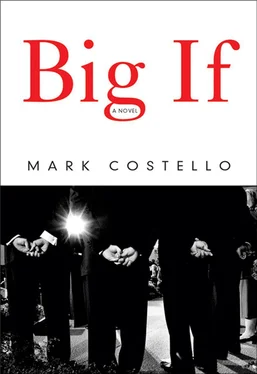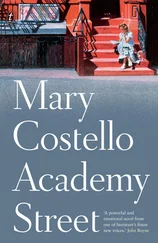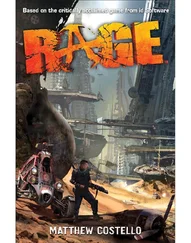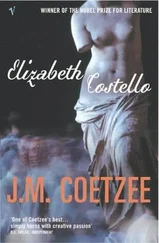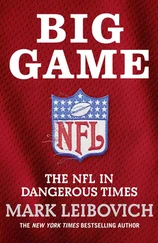They lay in bed. She traced his scars.
She said, “Movie lovers do this, Tash, but I never did. Lloyd is scarless, of course.”
A slice above the hairline. She traced it. “What’s this?”
“Kid hit me with a rock,” Tashmo said. “I was fourteen. It was strictly accidental. Poor kid went to Vietnam, died with the Marines.”
“And this?”
An old gash down the lifeline of his palm.
“Bowie knife, jungles of Chu Lap, 1968. I was opening a jar of Skippy peanut butter. They’re vacuum-sealed and—”
“This?”
Stitches on his buttock. “A snake. My horse. Betsy Annenberg.”
“And this?”
His calf. He said, “You bit me.”
She doubted this.
They listened to the ocean and the radio and polished off the scotch.
She said, “I’ve been four places in the world, counting all of California as one place.” She said the others were: Maryland; Muncie, Indiana; and the Punjab.
They were in the trailer the night before Reagan headed east again.
“What’s in Muncie?” Tashmo asked.
“My innocence, my growing up. I told you that whole story.”
“What about the Punjab?”
“ Sepoy! My big shot at feature film. I was Lady Adelaide, frigid baroness and bitch extraordinaire, trapped in the seething tumult of the 1854 Raj Mutiny. The producers were three dubious Hindus with underworld connections. They planned two endings, one for export, in which whitey wins and I marry Major Smuts, the other for India, in which I die quite badly. The producers asked if I could do a British accent. My agent said, ‘She doesn’t have to. She’s a native Londonian, as English as the queen.’ The producers said, ‘But she seemed so American on Barnaby Jones. ’ My agent said, ‘I told you, she’s a genius!’ We shot all the scenes involving elephants and the backing collapsed. I later heard the movie was cover for an arms deal, an excuse to import rifles and light artillery. The extras were actually members of a Hindu terror group. Big things afoot in Bangladesh, I gather.”
They drank the scotch and listened to the wind across the parking lot. She didn’t own a television, but she read TV Guide —to keep abreast, she said. She bought it every week, but didn’t subscribe.
He asked her why. He said, “It’s always cheaper to subscribe.”
She said, “This way I can stop at any time.”
She brought the eggs to the table steaming. He was getting ready to climb into his car and drive the switchbacks up to Reagan’s mountain, where the helo would take them to Mugu, on to Washington — the world.
“Stay,” she said. “We could live this way forever.”
Did he fall in love with Mrs. Felker? He thought he loved her, coming east on Air Force One — loved her more than Shirl, more than the girls, more than all his other mistresses combined. He loved her, maybe, even more than he loved Ronald Reagan.
When the team got back to Washington, Tashmo started sleeping in the ready room, a line of cots in the basement of the White House for agents pulling back-to-backs. He couldn’t face Shirl, Mandy, and the baby, and the shitty new construction in upper P.G. County. This went on for days. Shirl tried to find him. She fed the kids and watched the nightly news for any sign of her AWOL husband. Shirl knew that Reagan was in town, meeting with the cabinet and the Contras, and she knew that Tashmo was somewhere in the presidential wake. On the fourth day of no Tashmo, Shirl showed up at the East Gate, bawling at the guards, Mandy in the backseat of the station wagon, Jeanette screaming from the bassinette.
The guard said, “Well, you know, they’re pretty busy in there.”
Shirl said, “Pretty busy? We’re a family in crisis here. Step aside or else I’ll run you down.”
A line of cars behind her. The guard made a call, trying to find the husband of this loon. The wall phone rang in the ready room. Tashmo picked up, heard the guard and Shirl cursing in the background. Tashmo said he hadn’t seen Tashmo in awhile.
Shirl stayed away after that. A silence. From Lydia, a silence. His wife and mistress were saying the same thing with their silence: this is the X that marks your life, the cloverleaf of choice.
He couldn’t choose. He slept on a cot five nights in a row, trying to decide: his mistress or his family? But he was back in a suit, official Washington, endless prayer breakfasts, bill-signing ceremonies, a rack of pens handed out afterwards as mementos of the law, the Pro-Family Export Amendment, the Glad and Happy Tidings Act of 1981—no posses, no horses, no thrilling vistas of not-101, just Tashmo standing post again, waiting for nothing on the pavement, a crowd of gawkers gawking at the limo with the Seal of Office on the door.
The X that marks your life. Reagan’s in the ballroom of a luxury hotel, addressing labor leaders. Tashmo is outside, underneath the overhang, a curving wall of poured concrete, roughened, the faux-sandstone look. Light rain falling in the street. Tashmo hears the detail coming out, Reagan through the doors, waving at the gallery, agents weaving all around him, Felker, Loudon Rhodes, chief-of-detail Tim McCarthy. Tashmo sees it happening: a distant sodden popping sound like hunters, cornfields, boyhood, Reagan stumbles as if bumped, Tim McCarthy falls, a cop falls to his belly. Tashmo’s like a movie extra playing Streetman when Rodan appears, one face in a mass reaction shot of faces, Oh . In the time it takes to startle and de-startle, bloody Reagan’s bundled past him, wrapped in Felker’s bulk. The door handle’s ripped from Tashmo’s hand, which is how he knows the limo’s off and safe. The blond boy with the pistol crumples under a humping, grunting pigpile of terrified plainclothesmen.
For the next two days, the agents kept a vigil outside G.W. Medical Center. Inside, Reagan quipped and wavered at death’s door. Loudon had to be sedated, Tashmo couldn’t eat, Felker didn’t shave, and none of them could sleep. The Service tried to send the agents home. The deputy director told them one by one to get some sleep, but they didn’t sleep or leave, they wouldn’t go, they couldn’t. They were Reagan’s boys. They had seen a nation at sweet zenith, and they had fucked it up, fucked it up, they had bungled something precious on the sidewalk at the Hilton, and Hinckley’s bullet, fired in the rain, was still killing Ronald Reagan as the doctors operated. Reagan’s agents lived in the lobby of the hospital, pissing in the men’s rooms and the shrubbery outside, Panepinto in the chapel lighting candles, bumming money to light candles, Gus Dmitri in the chapel, offering his prayers. Billy Spandau in the chapel offering his life, Dear God please take my life, but spare my protectee , offering his life and Panepinto’s too, if this would tip the scales. They couldn’t sleep or leave until the word came down from the man himself, from Ronald Wilson Reagan: Go home, boys, I’m in the clear — I want you to go home.
Tashmo left the hospital that day, drove back to P.G. County, the shitty house, the yard, the screaming baby and his wife. He never saw Lydia again.
Tashmo stood by the back wall of the Rumsey Moose Lodge, waiting for the motorcade to show. He was watching the loose crowd of Moose and friends of Moose, the volunteers, the press pool from the lost bus. O’Teen was busy at the choke point, shaking his tray, “Anything metal—”
Tashmo was thinking, Shirl — this is my apology, my last full accounting. This is what I did and didn’t do. I’ll skip the others, Shirl, because they’re not important — the barmaids and the bridesmaids and the campaign volunteers, the eager phone bank coeds and my Christmas party conquests, too numerous to count. This is what I did — and I lied about it too, and I know that I’m supposed to say that the lie is worse than the lay, a bigger, more polluting sin, and I’ll say it, and believe it. I know I’m supposed to say that I never loved a one of them. Loving them is even worse than laying them, I know, somewhere well below lying about laying, and so I’ll say that though I laid and lied, I never loved. I loved them all, of course. I loved them as a concept, as a demographic, but I don’t think that counts as love, do you? But I know I cannot lie in my apology, and so I have to say: maybe I loved Lydia a little.
Читать дальше
